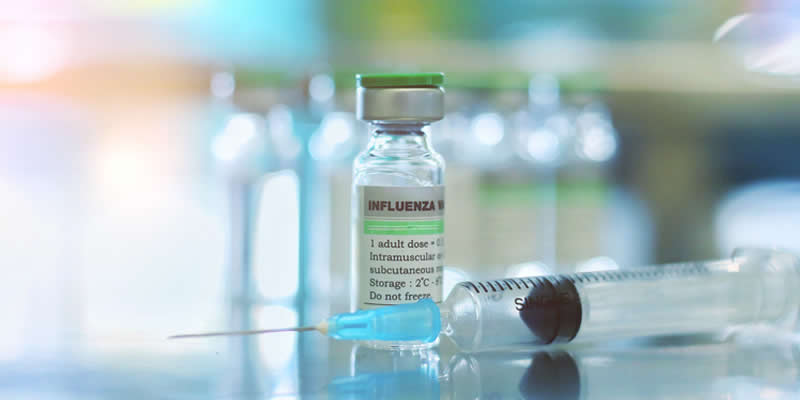Last year’s flu vaccination could have offered some protection against COVID-19, researchers have said.
A new study carrid out in America has shown that those who had the jab were less likely to test positive for coronavirus and if they did, they had fewer complications.
- NHS flu vaccine found to offer protection against COVID-19
- How do I know if I have a cold, the flu or coronavirus?
These findings suggest that the flu vaccine is still a very powerful, preventive medicine, which lead researcher Dr Marion Hofmann Bowman, is continuing to recommend it to her patients despite influenza season coming to an end.
Dr Hofmann, an associate professor of internal medicine and a cardiologist at the Michigan Medicine Frankel Cardiovascular Center. Michigan Medicine is the academic medical center of the University of Michigan.
Hofmann, an associate professor of internal medicine and a cardiologist at the Michigan Medicine Frankel Cardiovascular Center, said: “It’s particularly relevant for vaccine hesitance, and maybe taking the flu shot this year can ease some angst about the new COVID-19 vaccine.”
The trial involved analysing the medical notes from more than 27,000 people who had tested positive for COVID-19 between March and mid-July of 2020.
- COVID-19 responsible for more deaths than pneumonia and flu
- Regular use of acid reflux drug associated with type 2 diabetes risk
Of that number, nearly 13,000 had been vaccinated against the flu, only four per cent became infected by COVID-19. Five per cent of the remaining 14,000 people who had not been immunised against the flu tested positive for COVID-19.
Dr Hofmann said: “It is possible that patients who receive their flu vaccine are also people who are practicing more social distancing and following CDC guidelines. However, it is also plausible that there could be a direct biological effect of the flu vaccine on the immune system relevant for the fight against SARS-CoV-2 virus.”
Dr Carmel Ashur, an assistant professor of internal medicine and a hospitalist at Michigan Medicine, who was also involved in the research, added: “It’s powerful to give providers another tool to encourage their patients to take advantage of available, effective, safe immunisations.”





